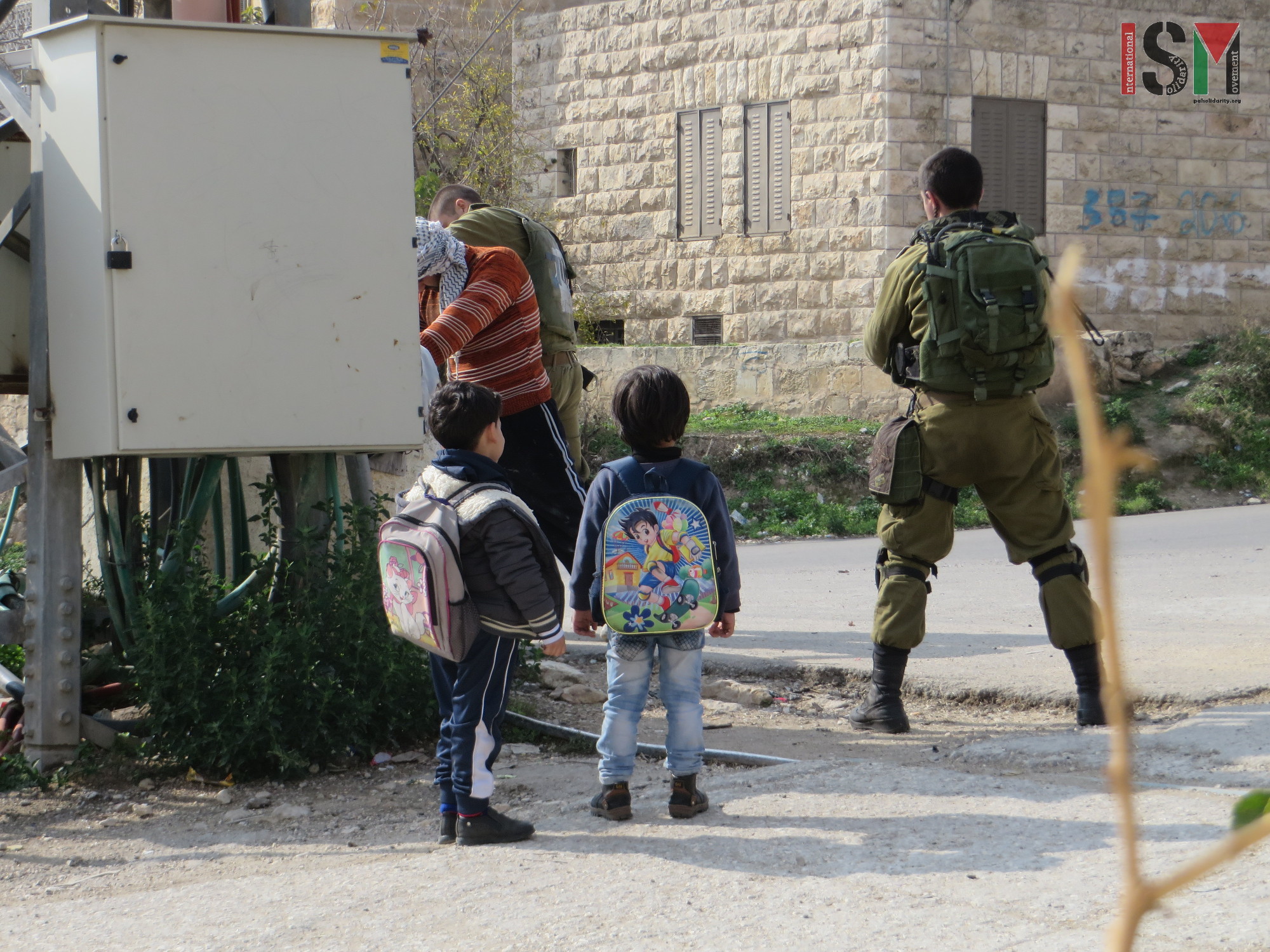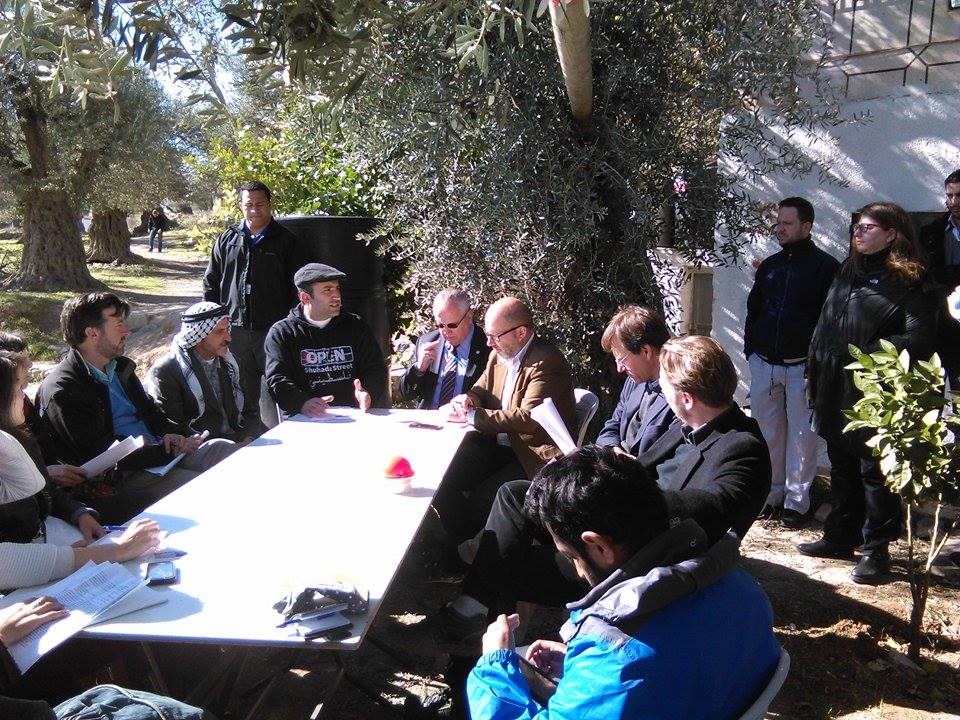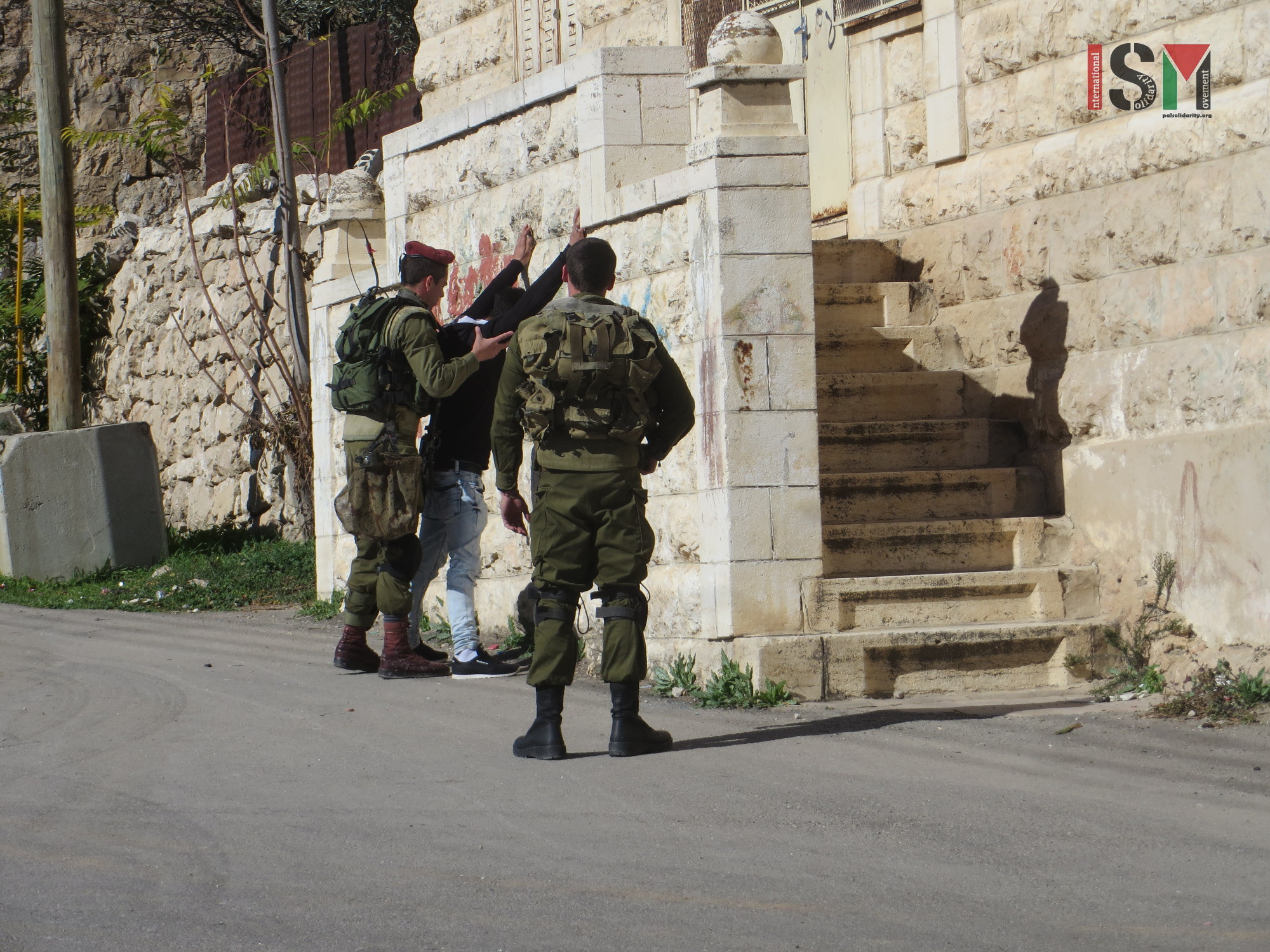Tag: Denial of Entry
-
Photo story: daily harassment by Israeli Forces on the way to school
December 18th, 2015 | International Solidarity Movement, al Khalil team | al Khalil, occupied Palestine On Thursday, 17th December 2015, Israeli forces yet again body-searched every male adult – and also youth – passing Ziad Jaber school in occupied al-Khalil (Hebron). Most female adults were also searched by male soldiers, a clear violation of their…
-
UN delegation visits H2-area of Hebron
December 12th, 2015 | International Solidarity Movement, al Khalil team | al Khalil, occupied Palestine On Tuesday, 8th December 2015, a delegation from the United Nations visited the H2 area of occupied al-Khalil (Hebron), ahead of the international Human Rights Day on 10th December. The UN-delegation visited the H2 area, under full Israeli control, to…
-
More humiliating body-searches in occupied al-Khalil (Hebron)
9th December 2015 | International Solidarity Movement, Khalil Team | Al-Khalil, occupied Palestine On Tuesday and Wednesday, 8th and 9th December 2015, Israeli forces bag- and body-searched virtually every male and female adult walking through or past a checkpoint in the Jaber mountain neighbourhood in occupied al-Khalil (Hebron). In the afternoon on Tuesday, Israeli forces…



